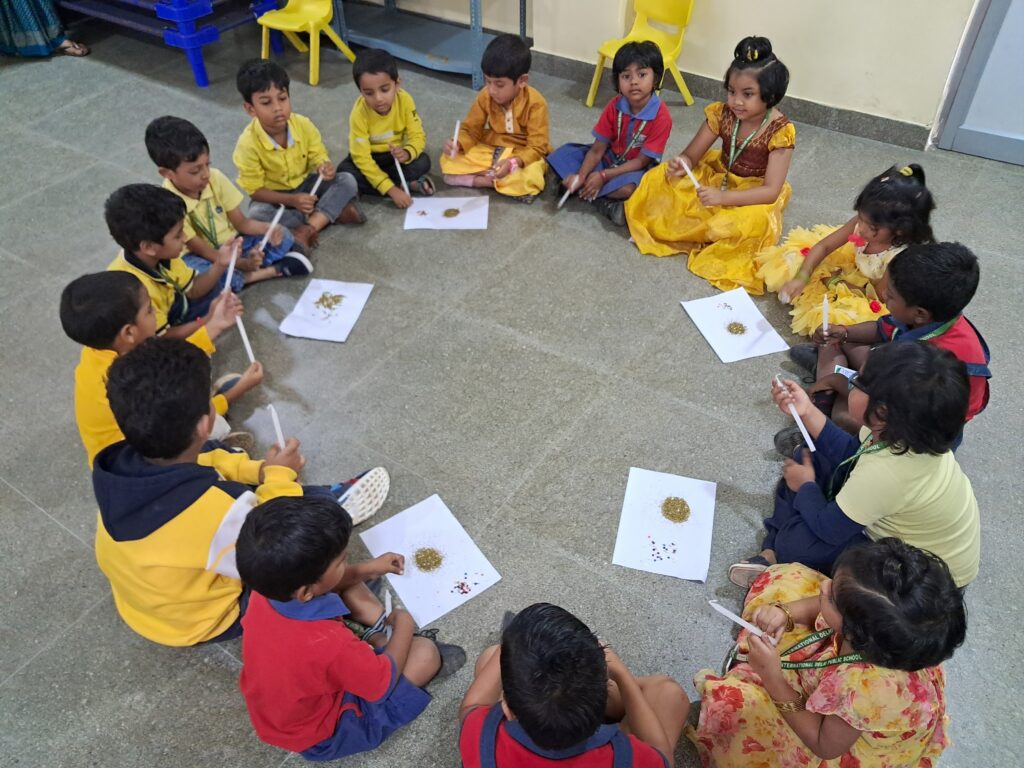At Delhi Public School (DPS) Kakinada, leadership isn’t just taught—it’s practiced. One of the most dynamic ways the school nurtures student leadership is through its Student Council Election Process, a democratic platform where students step up, voice their ideas, and take on responsibilities that shape school life.
This process not only develops leadership qualities but also encourages a sense of accountability, teamwork, and civic responsibility among students from a young age.
What is the Student Council?
The Student Council at DPS Kakinada is a representative body of elected students who serve as a bridge between the student community and the school management. Positions typically include:
- Head Boy & Head Girl
- Sports Captain
- Cultural Secretary
- House Captains
- Discipline In-Charges
- Class Representatives
These student leaders play a key role in organizing school events, promoting discipline, encouraging participation, and fostering a positive school environment.
Why Student Elections Matter?
Student elections are more than just selecting representatives—they’re about empowering students with real-world skills. The election process helps students:
- Understand democratic values
- Learn how to express ideas publicly
- Practice decision-making
- Develop confidence and leadership
- Promote a culture of fairness and teamwork
Step-by-Step Election Process at DPS Kakinada
1. Nomination of Candidates
Interested students submit their nominations for various positions. They must meet certain eligibility criteria such as academic performance, discipline record, and active participation in school activities.
2. Screening & Shortlisting
A panel of teachers and coordinators reviews all nominations. The shortlisted candidates are announced and move on to the campaigning phase.
3. Campaigning
Candidates present their manifestos, ideas, and plans to their peers. This stage includes:
- Poster displays
- Speeches during school assemblies
- Classroom interactions
- Digital presentations (for higher classes)
It’s a vibrant and respectful campaign phase where students learn to promote their vision ethically and effectively.
4. Voting Day
A secret ballot voting system is conducted, allowing all eligible students to vote for their preferred candidates. DPS Kakinada ensures the process is fair, transparent, and well-supervised.
5. Result Announcement
Votes are counted under the supervision of staff. Results are declared during a formal assembly, and winners are congratulated for their efforts.
6. Investiture Ceremony
The newly elected Student Council is honored in a grand investiture ceremony, where badges and sashes are presented. Students take an oath to serve the school community with dedication and integrity.
Benefits of the Election Process
- Develops Leadership and Public Speaking Skills
- Encourages Teamwork and Responsibility
- Fosters School Spirit and Active Participation
- Teaches Ethical Campaigning and Decision Making
- Builds Confidence and Democratic Values
Conclusion
The Student Council Election Process at DPS Kakinada is not just a tradition—it’s a powerful educational experience. It gives students the opportunity to be heard, take charge, and make a difference. Through this process, DPS Kakinada molds responsible citizens and future leaders who are ready to face challenges with courage and confidence.
Looking for a school that champions leadership and student empowerment? Delhi Public School Kakinada could be the right place for your child to grow and thrive.
Frequently Asked Questions
The Student Council is a body of elected student representatives, including positions such as Head Boy, Head Girl, Sports Captain, Cultural Secretary, House Captains, Discipline In-Charges, and Class Representatives. These members act as a bridge between the student body and school administration, organizing events and promoting a positive school environment.
Kakinada IDPS
The election process comprises several stages:
Nomination: Interested students submit their nominations, meeting criteria like academic performance and discipline.
Screening: A panel reviews nominations and shortlists candidates.
Campaigning: Candidates present their manifestos through posters, speeches, and presentations.
Voting: A secret ballot allows students to vote for their preferred candidates.
Kakinada IDPS
Result Announcement: Votes are counted under supervision, and results are declared in a formal assembly.
Investiture Ceremony: Elected members are honored with badges and sashes, taking an oath to serve with dedication.
Participation in the election process helps students develop leadership qualities, public speaking abilities, decision-making skills, and an understanding of democratic values.
Kakinada IDPS
Students who meet specific criteria, such as good academic standing, discipline records, and active participation in school activities, are eligible to nominate themselves for various positions.
Kakinada IDPS
DPS Kakinada ensures fairness by supervising all stages of the election, from nomination to result declaration, maintaining transparency and integrity throughout the process.








